Section III - Performance Tests, Real-World
Here we have two tests that are designed to put the performance of the motherboard and its subsystems to the test. Both require good CPU, Memory, HDD and even to a lesser extent audio and network performance. The two tests we chose were Lightwave 3D 9.6 and CyberLinks's Media Espresso 6.5. We will be adding at least one more real-world test to this battery in the near future, but for now these two cover quite a bit.
Lightwave 3D 9.6 x64 -
Lightwave is another industry standard application for 3D animation and rendering. It has a large tool base and the rendering engine is highly threaded (when using the right render model). This application is also capable of expanding to 4k resolutions as well as ray tracing for rending the light sources. For our testing we use frame 470 of the Pinball scene found in the LW 9 Content folder. This uses the newer perspective camera that is better suited to a multi-CPU/Core environment. This camera style also uses ray tracing and a much improved anti-aliasing method. Settings are shown below in the attached screen shot. Of course these are single frame renders and they are not a complete picture; for that you have to take into account the number of frames an average project would have. In a typical 30 second commercial you will have around 840 to 960 frames (at 28 – 32 FPS) this means that you have to multiply the time of a single frame by that number just to get a vague idea of how long that 30 seconds would take. This is because each frame will have a different render time based on complexity.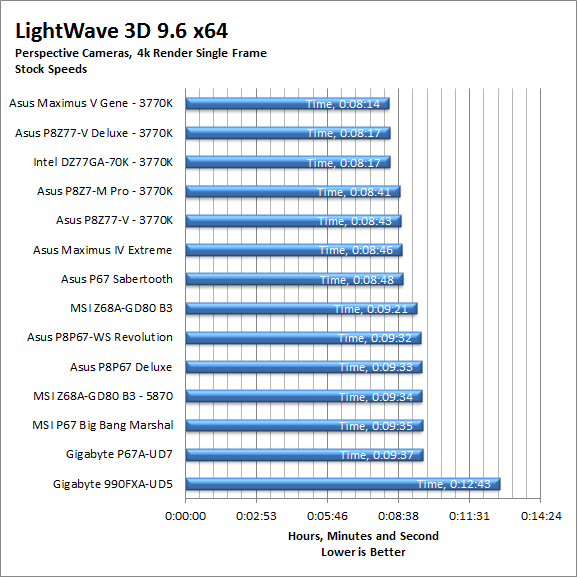
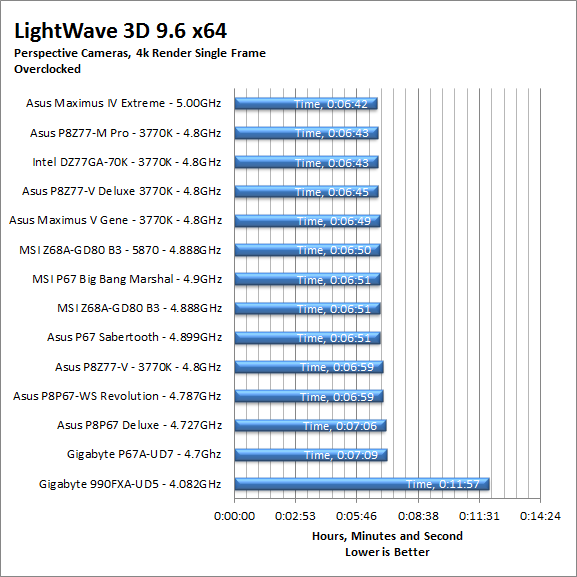
The P8Z77-V Deluxe was able to cut through our LightWave testing without any issues at stock speeds. We did see the performance drop off when overclocked (yes this is a trend), but the drop was not massive. It still is enough to have a noticeable effect on our project time. We imagine that Asus will need to tweak the BIOS a little to improve the performance scaling between stock and overclocked. 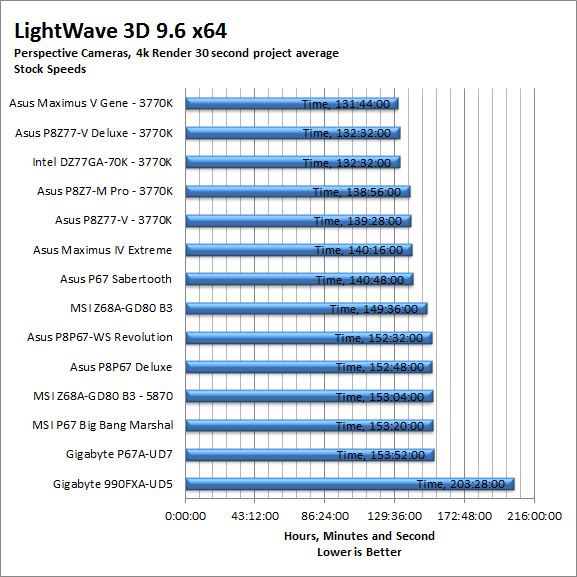
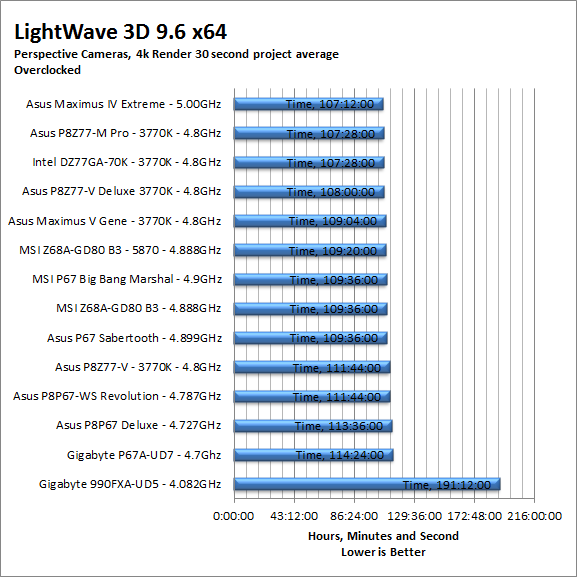
CyberLink Media Espresso 6.5 -
After having various issues with AutoGK and Intel CPUs with more than four cores we have changed our Media Encoding test to use Media Espresso from CyberLink. Although this new utility does not have the same ability to transfer directly from DVD it is still a good test to transfer different media types into a usable format for your iPad, iPod, or other media player. Our test involves using multiple (Six) 20 minute media files and transcoding them for an iPad. This gives us a very good indication of how well a motherboard can handle this type of work load.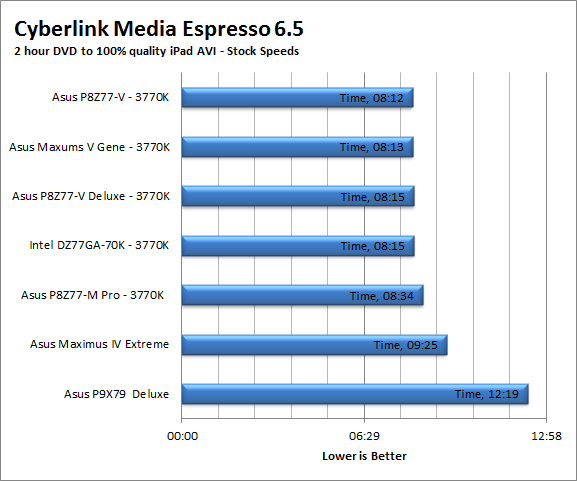
All of the transcoding times for the Z77 based boards are within a few seconds of each other which makes it hard to say which one is “better” sure we can call a winner, but it would not be a good representation of the actual information. In reality Ivy Bridge brings some very efficient processing power to the tablet which allows you to cut through the video transcode in very short order. 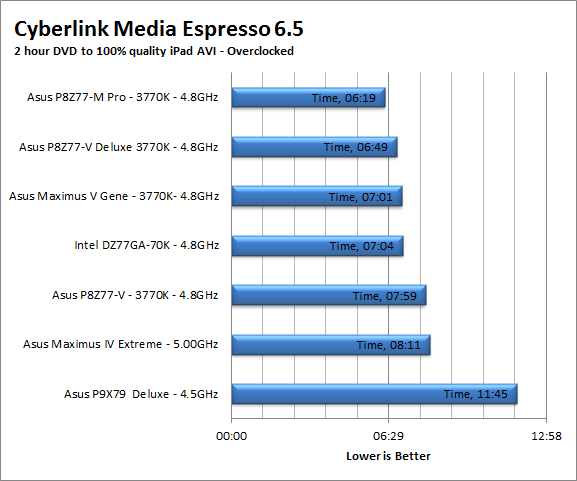

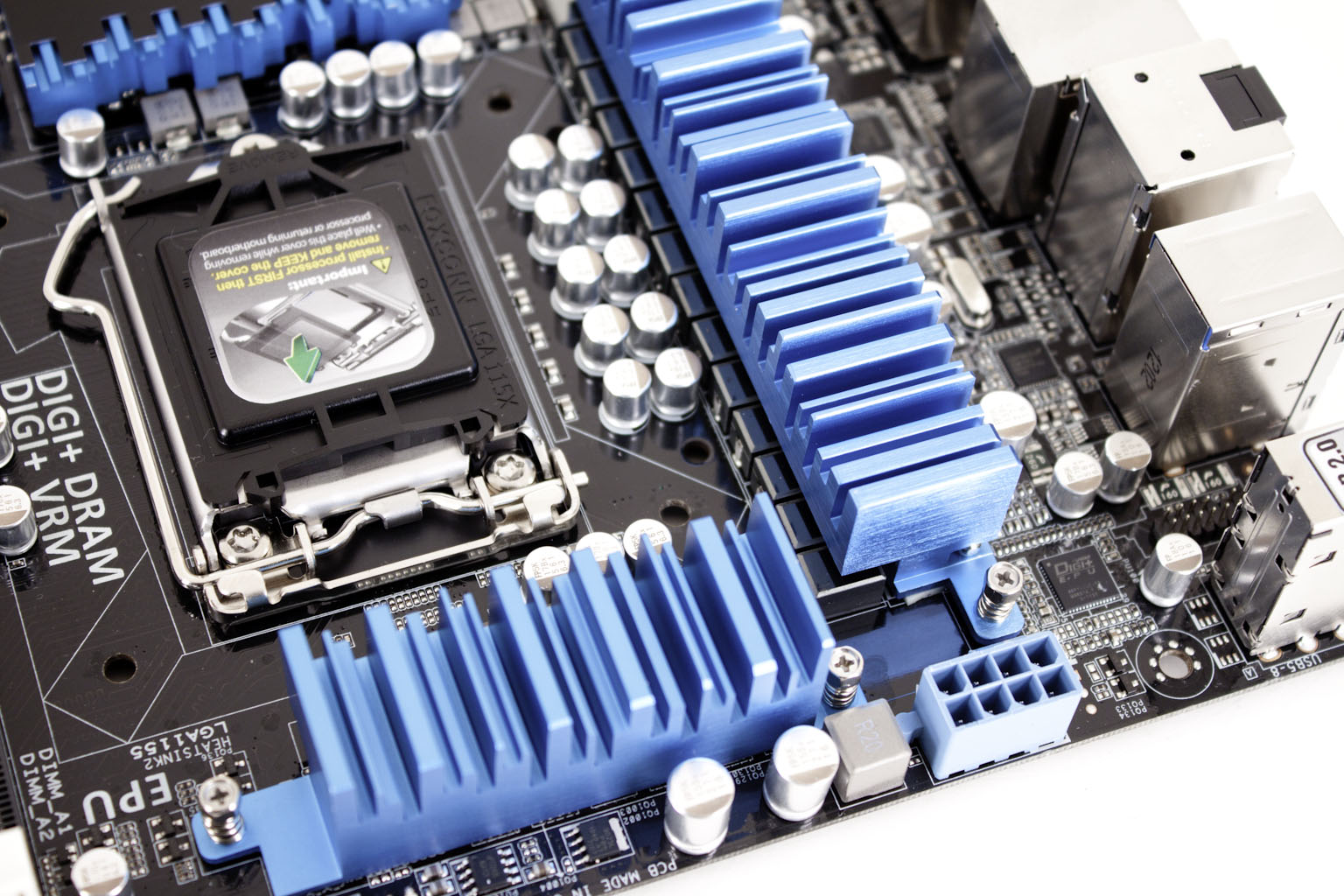 After what seemed like a long time we are finally getting into the full performance section of our review. The Asus P8Z77-V Deluxe is a board that really has quite a bit going on which makes properly covering everything something of a chore. You can check out our
After what seemed like a long time we are finally getting into the full performance section of our review. The Asus P8Z77-V Deluxe is a board that really has quite a bit going on which makes properly covering everything something of a chore. You can check out our 

